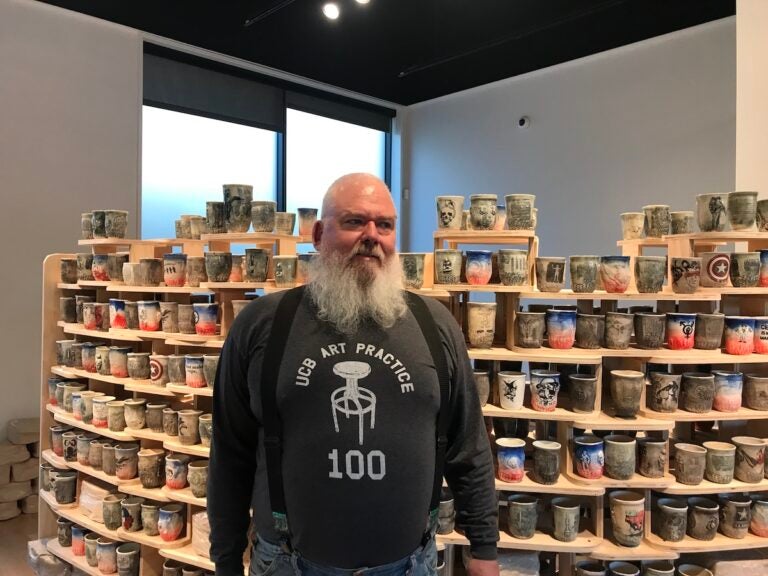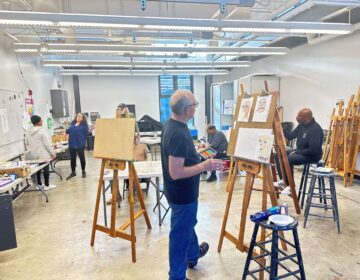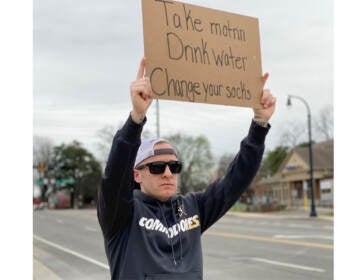How Veterans Find Healing After War
On this Veterans Day episode, we explore healing after combat — from a psychedelic treatment in Mexico to making ceramic mugs.
Listen 49:34
Marine Corps veteran and ceramic artist Ehren Tool shows his artwork displayed at the "Clay is Care" exhibit at the Clay Studio in Philadelphia. (Maiken Scott/WHYY)
Soldiers face danger every day in the service, ranging from physical injury to emotional trauma — but for a lot of veterans, the hardest part comes when they return to civilian life. That’s when many vets end up struggling the most, finding themselves battling with depression, isolation, and PTSD.
On this Veterans Day episode, we explore the different paths veterans take to heal their invisible wounds. We talk with a Marine Corps vet-turned-ceramics artist about how working with clay helped him process the trauma of combat and reconnect with civilian life, find out how psychedelic-assisted therapy changed the life of a retired Navy SEAL, and hear the story of a Vietnam vet who found peace in an unexpected place after decades of guilt.
ALSO HEARD:
- We talk with ceramic artist and Marine Corps veteran Ehren Tool about why combat experiences are so hard to talk about, and how working with clay helped bring him out of the fog of war. His work is currently on display at the “Clay as Care” exhibit at the Clay Studio in Philadelphia.
- When Marcus Capone retired from the Navy SEALS in 2013 after more than a decade of service, he found himself at loose ends, and battling a deep depression. For years, he cycled through antidepressants and other prescription medications, but nothing worked — until his wife suggested a radical alternative: psychedelic-assisted therapy. Capone describes his experience, how it changed him, and why he thinks it worked when nothing else did. Capone is the co-founder and chairman of VETS: Veterans Exploring Treatment Solutions, and is featured in the new documentary “In Waves and War” now on Netflix.
- Psychiatrist and researcher Rachel Yehuda explains the science behind psychedelic-assisted therapy, and what she’s learned about its potential to treat PTSD in veterans. She leads the PTSD clinical research program at the James J. Peters VA Medical Center in New York City.
Segments from this episode
WHYY is your source for fact-based, in-depth journalism and information. As a nonprofit organization, we rely on financial support from readers like you. Please give today.






